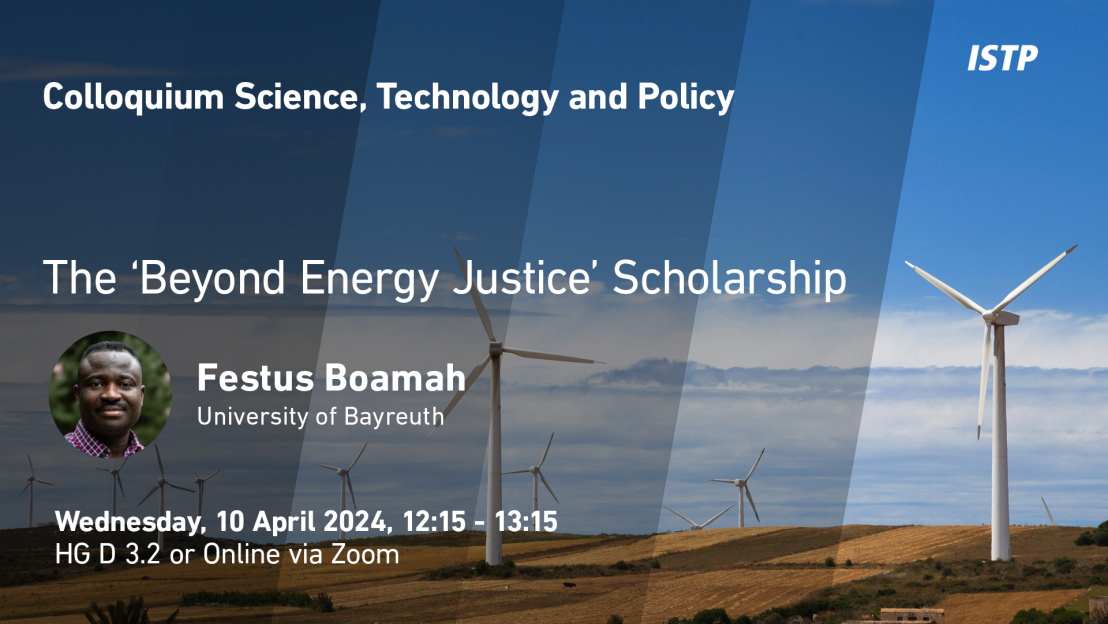Colloquium: Dr Festus Boamah
Wednesday, April 10, 2024, at 12.15 - 13.15
HG D 3.2 or online, Zoom | Sign up here
The ‘Beyond Energy Justice’ Scholarship

Energy justice scholarship is at a crossroads due to four crucial dilemmas surrounding the search for ‘appropriate’ explanations, theories, and applications of energy justice. First, energy justice conceptions are rooted in comparison notions, Western epistemologies and Eurocentric development orthodoxies. Maintaining this mainstream energy justice framework is considered a recipe for reproducing cultural imperialism, Western domination and neo-colonial institutions that perpetuate socio-ecological injustices. Second, the ‘total liberation’ advocacy of the recent critical energy scholarship gets it stuck in the ‘victim–oppressor’ dichotomy, overlooking ‘conceptual baggage’ issues and ignoring structural limits to provincialising Western knowledge or resisting neo-colonial institutions. It draws mainly on Latin American experiences, repeating the pitfalls of the mainstream energy justice framework. Third, energy justice scholarship is characterised by divergent and ever-evolving cultures of acquiring, universalising and validating knowledge about energy justice. Fourth, fossil energy–renewable energy interdependence and paradoxical socio-ecological impacts of bottom-up renewable energy systems challenge purported therapeutic effects of energy justice. Energy justice, therefore, neither guarantees uniformly desirable nor deterministic outcomes across space and time. These dilemmas warrant rethinking energy justice from comparative empirical and epistemological perspectives. I utilise African case studies to exemplify crucial energy justice issues that require attention ‘beyond’ current conceptions of energy justice.